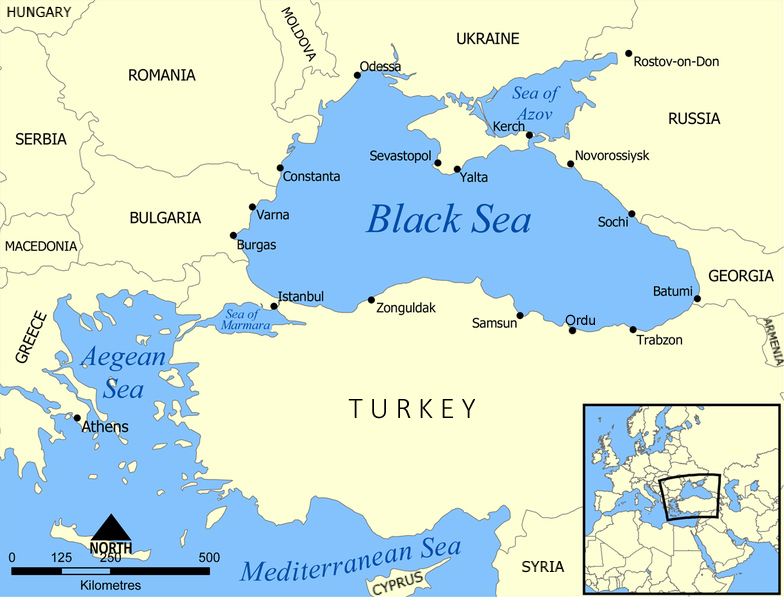 |
Odessa in early 1900s; photo credit HOBOPOCC - Public Domain,
https://commons.wikimedia.org/w/index.php?curid=10667361
|
Teffi reaches Odessa where she and all the other fugitives believe they will be safer and this feeling is confirmed when France, which is one of Russia's allies, occupies the port town. But one day, without warning, the French troops left. Rumours of the approaching Bolsheviks were rife, gunfire could be heard at night, and people who had hoped to get travel permits from the French were scrambling to get on the last boats to set sail.
Friends of Teffi had passes to go on board the Shilka, heading for Vladivostok and said she could go with them.
'Now that something had been arranged, I realized just how much I wanted to leave...I could see what life would be like for me if I stayed. It wasn't death itself that I was afraid of. I was afraid of maddened faces, of lanterns being shone in my eyes, of blind mindless rage. I was afraid of cold, of hunger, of darkness, of rifle butts banging on parquet floors. I was afraid of screams, of weeping, of gunshots, of the deaths of others. I was tired of it all, I wanted no more of it. I had had enough.'
But when she turns up on the quay at the agreed time, there were no lights on the boat, and no-one else was waiting. She went back to her hotel, where almost everyone had left, including most of the staff. When another friend turns up, distraught and not wanting to be on his own, he says that the friends who had said she could go with them on the Shilka, had already left, on board the Caucasus, heading for Constantinople. But he suggests she go with him on the Shilka, as he had two passes and didn't want to be on his own.
'We drove along the dark streets to the harbour.
We heard the odd shot somewhere nearby; in the distance, though, the gunfire sounded more serious.'
 |
| The Red Cavalry Brigade enters Odessa, 1919; photo credit wikimedia commons |
They succeeded in getting on board the Shilka, which eventually arrived in Novorossiisk. But this journey became the most bizarre of them all, including an engineer among the passengers having to fix the engine, while all the other passengers had to load the coal for the boiler, and gut the fish for the meals, as most of the crew seemed to have absconded.
From Novorossiisk, where there were no rooms to be found, she ended up back on board ship and staying there, until she was asked to go to Yekaterinodar, '[which] was at this time our centre, our White capital.' Teffi's plays were being performed there, and she was asked to give a short reading. They performed to a full house; many high ranking officers including Anton Denikin, the commander in chief of the White forces in southern Russia, were in the audience.
 |
| Photo credit: wikimedia commons |
Almost all of the refugees including Teffi, believed that they would go back to Moscow or Saint Petersburg at some point or at least to some part of Russia. They also almost unanimously believed or hoped, that the Bolsheviks would soon be beaten back by the White Army and that some kind of normalcy would return. For Teffi and many others, though they did not know it at the time, they were leaving Russia for good; sailing away from Novorossiisk, meant seeing their homeland for the last time. While Teffi herself would go on to live out the rest of her life in Paris, some of her friends would return to Russia and many of them would not survive in the Bolshevik regime.
Comments